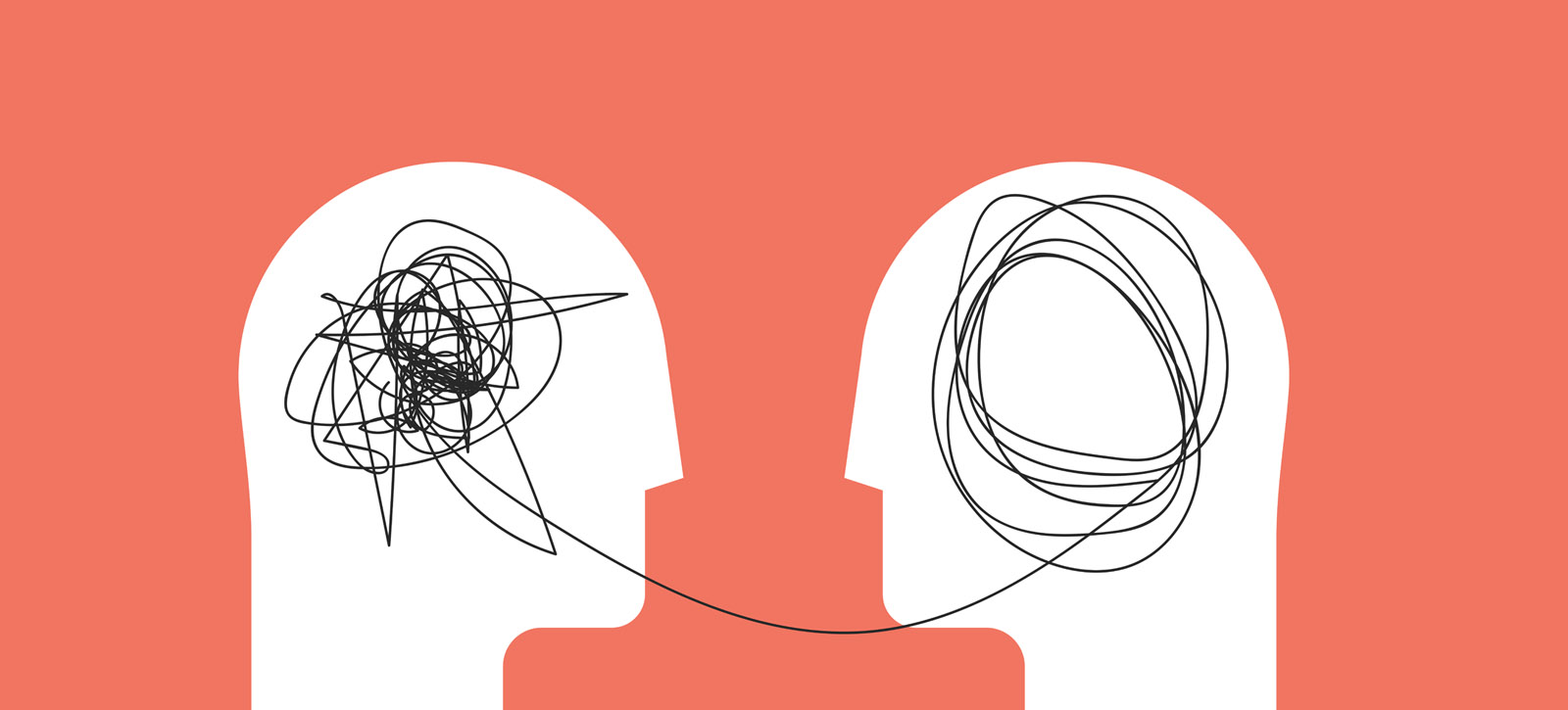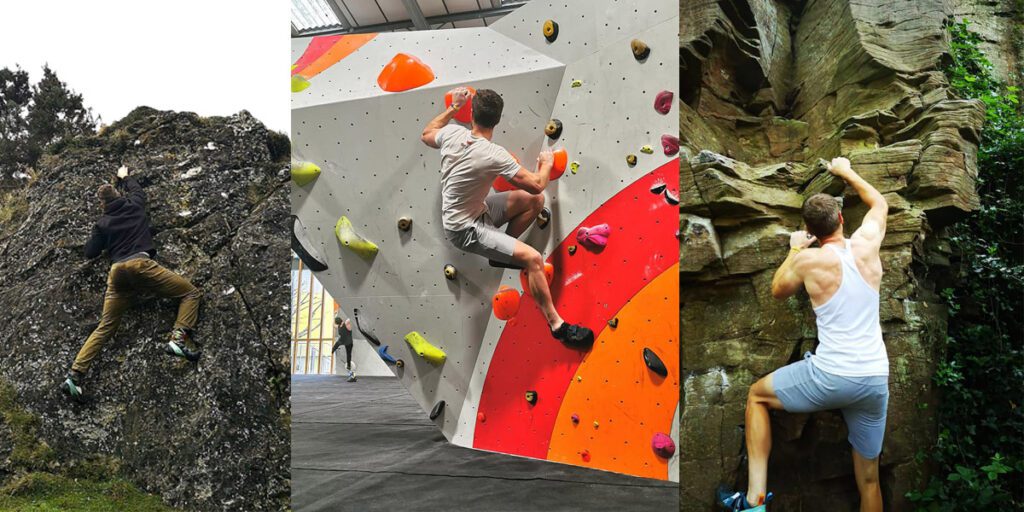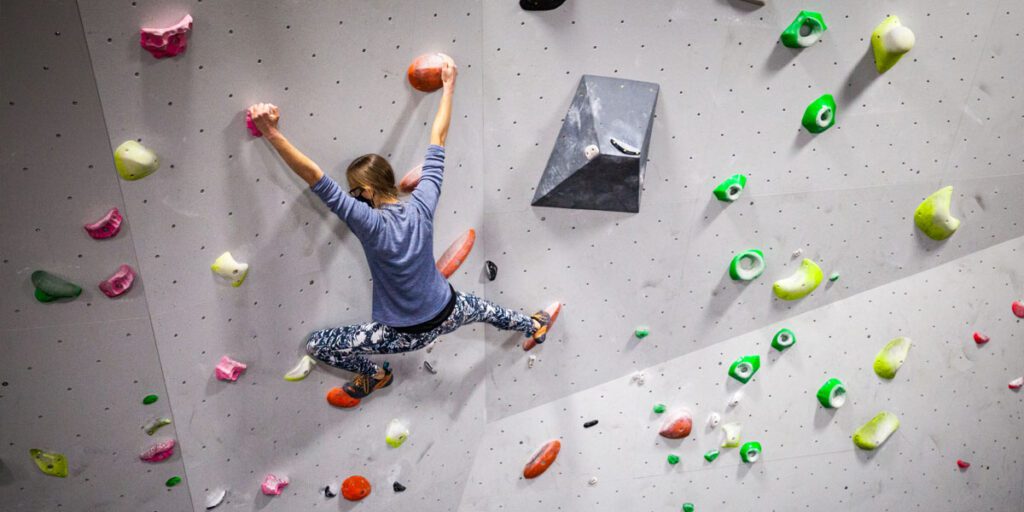19.01.21
Climbing as therapy
TCA Bristol climber, Pete Burrows shares academic research on the benefits of climbing for mental health and wellbeing. If you had any doubts about pursuing this as a hobby, Pete’s passion for the sport and his findings may persuade you otherwise.
Getting into climbing – Pete’s journey
My name is Pete Burrows and I have been part of the TCA community since October 2019. I was introduced to The Mothership by a friend (more on her later) and have continued to boulder consistently and learnt to lead climb at The Church in spring 2020. You’ll likely see me chatting to strangers, looking ridiculous pulling onto 7B problems to fall off immediately, or top roping 6B thinking I’m the business and then quivering my way up a 4 on lead.
I’m writing this article because mental health is both a professional and personal area of insight and because climbing has become an increasingly important part of my life which has an underexplored intersection with mental health and wellbeing.
Benefits of physical activity and sport
I work for the University of Bristol as Physical Activity and Health Development Officer, within the division of Sport, Exercise and Health. My job is to deliver projects and initiatives that improve student, staff and community health and wellbeing by harnessing the proven benefits of physical activity and sport. A headline project I’m responsible for at Bristol is the Healthy Minds programme, a physical activity intervention to support students experiencing mental ill-health while studying with us.
Sport or the ‘S’ word, gets a bad rep as a hangover from generations of negative experiences in school PE lessons and as a result of a dated media narrative about who sport is for, what to expect, why someone might take part, and the benefits it confers. As a result, physical activity, exercise and sport are still sadly one of the best-kept secrets to improving mental health and wellbeing.
There is still a long way to go, but we have seen a significant shift in recent years and one that has accelerated even quicker this year as a result of Covid 19. With activity severely limited, peoples attitude towards physical activity has changed. There is a definite reason for optimism.
How does exercise improve mental health?
Physical activity as a standalone or supplemental therapy for mental illness is sadly, even in 2021, still viewed as novel, which I find quite alarming.
There are mountains of research to validate the role physical activity plays in preventing, mediating, and improving a wide variety of mental health diagnoses and this is demonstrated by the scientific community through countless randomised control trials, systematic reviews and meta-analyses. From a mechanistic perspective, the positive effects of exercise can be divided into two distinct areas:
Biophysical factors
This is rooted in neurobiology and is very complex but think of terms like ‘runners high’ and words we throw around like ‘endorphin’ or ‘feel-good hormones’. On the most basic level, initiating exercise has a positive impact on our brain and more tangibly our mood. It preferentially modulates central nervous system neurotransmitters responsible for alertness, pleasure, reward, anxiety and pain. The type, duration, frequency, and intensity of activity all have an impact in this complex interplay.
But the bottom line is exercise is good for your head.
More details on specific pathways can be found in this article:
From Neurobiology Mechanisms to Mental Health
Psychosocial factors
This is less biologically complex but can be equally hard to grasp, as its prone to being a bit woolly and is also individually conceptualised.
Psychosocial means social factors that impact on an individual’s thoughts, feelings, beliefs, and behaviours. A key concept in research is self-efficacy. This is an individual’s belief in their ability to execute a behaviour. This is heavily influenced by other factors like previous experience, environmental factors and social norms.
For example whilst I might be physically able to flash a crimpy 6B boulder having never set foot in The Mothership before, my self-efficacy towards this would be significantly higher if I’d sent similar problems before, was surrounded by other people doing similar and was encouraged or motivated by this community and environment.
The psychosocial benefits of physical activity on mental health are multiple in this sense. A sense of community, belonging, mastery, increased self-esteem, social interaction and identity are all included and are things that likely resonate with you and the reasons you climb.
helping students
The Healthy Minds programme
So all this science guff is probably a bit boring out of context so I wanted to share some information on the Healthy Minds programme I run at the University of Bristol which hopefully brings some of this to life.
Since 2016 we’ve helped over 700 students facing mental health difficulties to improve the way they feel through structured exercise and mentored support. On average we see a 30% improvement in participant wellbeing over the 12 weeks of the programme and we measure this using the Warwick Edinburgh Mental Wellbeing Scale which is a verified tool employed by the NHS.
If you’d like more information on the way Healthy Minds is designed and some of our outcomes you can check out this webinar produced for BUCS late last year.
It really works – Charlotte’s story
A real-life case study and the reason I found climbing can be found in my friend and graduate Charlotte who I have a lot to be grateful for. She has gone on to be a major advocate and champion for the programme and a big supporter of my own mental health. Absolute legend that Jones!
You can find out more about Charlotte’s journey with Healthy Minds in the short video and this article.
Climbing in Focus
This article is part of a TCA series on Mental Health.
Before Covid was a thing I was working towards an agreement with TCA to bring student participants of the Healthy Minds Programme to The Mothership as part of our social activity offer. I look forward to better days when this will be possible.
Given the focus of this article, I wanted to part with some academic material on climbing that supports my position on this. Until I looked into it I wasn’t aware of the growing body of research into climbing as a standalone treatment for mental ill-health. As it turns out in the last few years ‘Bouldering Psychotherapy’ has become a real thing! The papers here show promising results in both acute cases and longitudinal relapse prevention. The second study is still a live trial – a German climbing study on depression – which is comparing exercise at home, talking therapies and bouldering therapy for their effectiveness in treating depression. I’ll be interested to see what they find!
So, the next time you’re getting stick for going climbing so much, you can tell the culprit it’s not climbing… it’s therapy.
If you have any friends who are struggling, you may consider introducing them to climbing when we reopen. We have climbs to suit all abilities in all centres.






